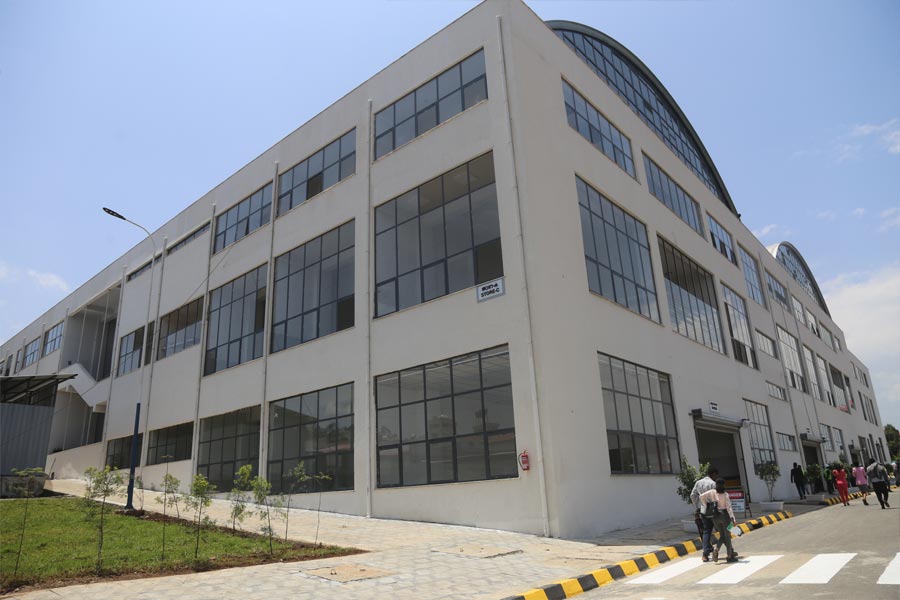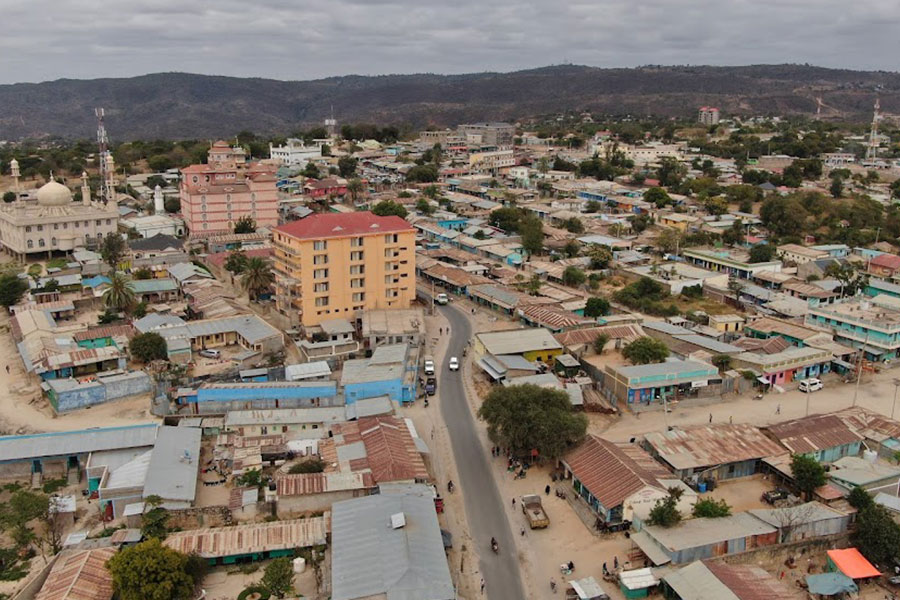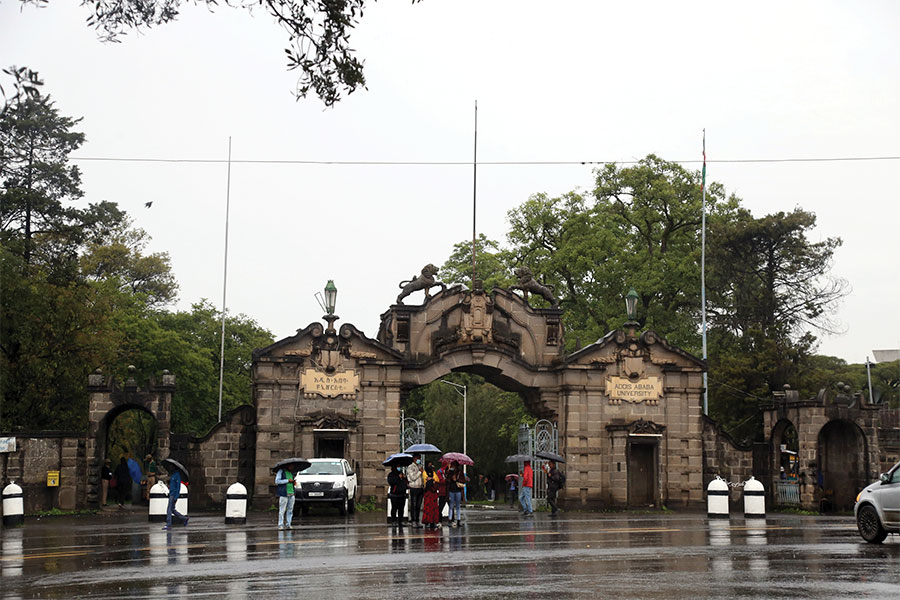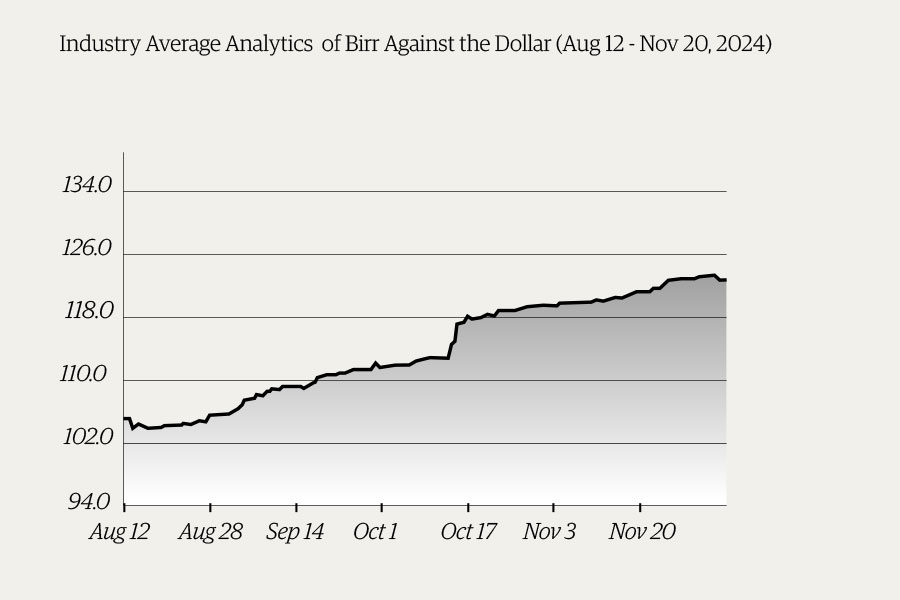
Fortune News | Feb 24,2024
A domestically-owned edible oil processing plant worth five billion Br, equivalent to the minimum paid-up capital required to establish a bank, has kicked off its operations. WA Oil Factory, built under the watch of its major shareholder and Chief Executive Officer, Worku Aytenew, the renowned businessperson involved in different sectors, has been under construction for almost five years.
The construction was handled by Chinese contractors, while expatriates were hired during the installation of machinery, commissioning, and testing periods. It will be inaugurated by the end of next week in the presence of government officials and other guests.
Having the capacity to process 1.3 million litres of edible oil daily, the plant is located in East Gojjam Zone, Amhara Regional State. It is the ninth investment of the WA group, which has been involved in the mining, aviation, farming, real estate, petroleum, and water bottling sectors as well as the trading and distribution of imported oil.
Having its head office in Addis Abeba, the new plant can also crush and produce edible oil from niger seed, sesame seed, peanut, soya bean, and haricot bean, besides being able to process crude palm oil imported from abroad.
Even though the factory's civil works were completed earlier this year, its management had been waiting until the state-owned Ethiopian Electric Power builds a transformer and connects it with the national grid. Four megawatts of electricity is needed to run the factory.
"We're getting enough amounts of electricity to run the factory," said Alazar Ahmed, chief marketing officer of WA. "Testing has been completed successfully." With a target of creating a linkage with at least 2,500 farmers to source raw materials, the factory has already stocked inputs needed to fully start production, according to him. "We have applied the latest German technology to run our machines," the marketing chief added.
WA is the third edible oil factory to be inaugurated this year. With an investment capital of 4.5 billion Birr, Phibela Industrial, having the potential of processing 1.6 million litres a day, was inaugurated in February 2021. A month later, another factory in Dire Dawa, Shemu Plc, officially began its operations with a daily production capacity of 220,000 litres of edible oil, investing 1.6 billion Br thus far. While both started production with a refinery, WA wants to buck the trend.
"Aiming to save foreign currency, we'd like to source our raw materials from farmers," Alazar said. But he did not hide the difficulty of accessing inputs locally because of the low production of agricultural commodities in the country.
During the last fiscal year, 7.7 million quintals of oilseeds, including sunflower and sesame, were produced across Ethiopia, portraying an eight percent annual decline. With a large chunk of such commodities exported abroad, most edible oil plants prefer to import the crude edible oil and refine it here, a path which has been followed by Phibela because of the unreliability of supplying inputs locally.
"In three years, we want to produce input on our own farm to make sure the supply chain is reliable. Until then, we'll keep refining the crude edible oil," remarked Eniyew Wassie, chief executive officer of Phibela.
Understanding such challenges and as a strategy to substitute direct imports of edible oil, the government has given a priority to refineries in availing foreign currency needed to import the crude edible oil, largely from Malaysia and Indonesia. The per capita monthly consumption of edible oil stands at 0.7 litres in Ethiopia, where the total demand stands at 71 million litres a month, half of which is being produced locally.
With the joining of four oil manufacturing projects, the country would be able to produce 50.6 million litres of palm, 27 million litres of sunflower, and 21.8 million litres of soybean oil annually.
But for Getachew Asfaw, an expert in economic planning with vast experience, this is only possible if there will be enough amount of forex required to import crude edible oil.
"This is a country where every dollar matters. The ultimate solution is boosting local production and substituting the raw materials, which can be harvested easily in the country," said Getachew, suggesting that commercial farmers must be given an incentive to produce such commodities to satisfy the demand of the edible oil plants.
PUBLISHED ON
May 29,2021 [ VOL
22 , NO
1100]

Fortune News | Feb 24,2024

Radar | Feb 06,2021

Fortune News | May 07,2022

Radar | Aug 14,2021

Radar | Jul 31,2021

Fortune News | Aug 14,2022

Radar | Jun 07,2025

Fortune News | Apr 02,2022

Fortune News | Aug 20,2022

Money Market Watch | Dec 08,2024

Dec 22 , 2024 . By TIZITA SHEWAFERAW
Charged with transforming colossal state-owned enterprises into modern and competitiv...

Aug 18 , 2024 . By AKSAH ITALO
Although predictable Yonas Zerihun's job in the ride-hailing service is not immune to...

Jul 28 , 2024 . By TIZITA SHEWAFERAW
Unhabitual, perhaps too many, Samuel Gebreyohannes, 38, used to occasionally enjoy a couple of beers at breakfast. However, he recently swit...

Jul 13 , 2024 . By AKSAH ITALO
Investors who rely on tractors, trucks, and field vehicles for commuting, transporting commodities, and f...

Oct 18 , 2025
The political establishment, notably the ruling party and its top brass, has become p...

Oct 11 , 2025
Ladislas Farago, a roving Associated Press (AP) correspondent, arrived in Ethiopia in...

Oct 4 , 2025
Eyob Tekalegn (PhD) had been in the Governor's chair for only weeks when, on Septembe...

Sep 27 , 2025
Four years into an experiment with “shock therapy” in education, the national moo...